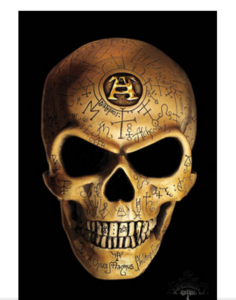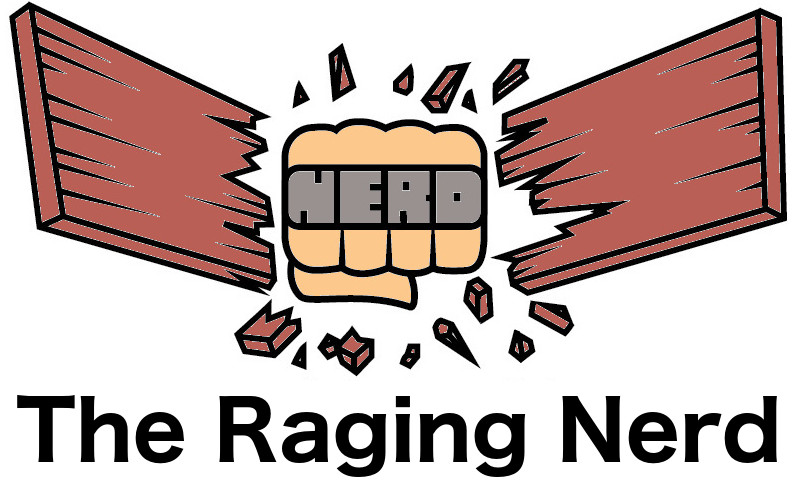Einstein: Too Smart For His Own Good?
Einstein was a strange bird, there can be no doubt about that. My first assumption from childhood, when I learned about Einstein, was that his style of dress and his hairdo were normal for his time period. That wasn’t true, though. Einstein was considered strange, socially inept, and childlike his whole life. While the rumors about him being a terrible student are not true, it is true that he was inept at many non-intellectual things. The gist of it is that Einstein was crap with practicalities: he was very smart in theoretical things, but his intellect was a hindrance in any other realm.
One good example of this is in the job market. Einstein was not very good at holding down a job while he was young. In fact, he was consistently fired from most of the jobs he applied to. He was able to graduate from university, but he could not do any jobs without being fired. He even took jobs tutoring small children, and was fired from those jobs as well. Some have reported that Einstein was lost in his head much of the time and could not do practical work-a-day jobs very well. He simply wasn’t cut out for manual labor. He wasn’t cut out for tutoring, either.
Einstein’s big break came when he worked at a patent office. This worked for him because all he had to do was review paperwork. More importantly, he didn’t have to constantly pay attention all the time. There were long stretches where he simply sat at his desk and did nothing at all. During those long stretches, he could work on his physical theories. The patent office was a blessing because it gave him time to work on physics and did not demand things from him that he could not produce, such as constantly paying attention to what he was doing.
Einstein is now a man whose name is synonymous with genius. But there are some people who are too intelligent for their own good. If you’re too absorbed in abstract ideas, and cannot ground yourself in physical reality no matter how hard you try, then it may be that you’re past the point where intelligence has any practical value.
Another way to put it is that intelligence is only useful up to a point. The point where it stops being useful to an individual is when it can no longer work for practical things. Past a certain point, intelligence is only good for doing abstract theoretical stuff and doesn’t really help anymore with the ordinary practical stuff. In fact, as in Einstein’s case, it can even be hindrance. So keep in mind whenever you see a person wearing an Einstein novelty t shirt that the man on that shirt was brilliant, but handicapped in a way by his intelligence.
The Appeal Of Alchemy
Alchemy seems so mysterious. The word conjures up images of arcane charts, lists of obscure elemental symbols, wizards and alchemists turning lead into gold, fantasy worlds, goblets, alembics, mortar and pestles, retorts, furnaces and beakers. There is something very Frankenstein-ish about alchemy, something that tempts the imagination and fascinates the mind. But what was alchemy, really? Where did all of this strange symbolism that straddles the border between magic and science come from? There’s an entire history behind it, an entire world of esotericism and proto-science, so let’s take a look at it. You might learn something really cool.
 Alchemy is a proto-science, but it’s also associated with magic. Many of the discoveries of ancient alchemy were legitimate scientific discoveries. The idea that you could control the conditions around a piece of matter and put it through different processes in order to induce desired changes is not, strictly speaking, wrong. Fundamentally, alchemy is the same basic idea as chemistry: the study of change. The difference is that alchemy and chemistry separated during the Renaissance and Enlightenment, with alchemy becoming more and more esoteric and magical, while chemistry joined the rest of the physical sciences. So alchemy is the origin of chemistry.
Alchemy is a proto-science, but it’s also associated with magic. Many of the discoveries of ancient alchemy were legitimate scientific discoveries. The idea that you could control the conditions around a piece of matter and put it through different processes in order to induce desired changes is not, strictly speaking, wrong. Fundamentally, alchemy is the same basic idea as chemistry: the study of change. The difference is that alchemy and chemistry separated during the Renaissance and Enlightenment, with alchemy becoming more and more esoteric and magical, while chemistry joined the rest of the physical sciences. So alchemy is the origin of chemistry.
However, even before splitting off from chemistry, alchemy was still deeply involved with magic and occultism. This is clear from the associations between alchemy and the various esoteric philosophies of late antiquity. Neoplatonists, as well as magicians and writers like Hermes Trismegistus, who wrote the famed Emerald Tablet, all dabbled in alchemy. The famous phrase “As above, so below,” first recorded in Trismegistus’ Emerald Tablet, is part of the philosophy of alchemy.
Indeed, many people even into the modern era experimented with alchemy. Even Isaac Newton, who laid the foundations of physics from his time until the 20th century, was not immune. Newton had an alchemical chest and spent much of his time absorbed in strange and arcane ponderings on the nature of alchemical processes. He saw a thoroughly spiritual dimension in it as well. It wasn’t just another science to him. He really thought that there were occult and supernormal powers that could be granted through alchemy.
All of this makes alchemy a good basis for much fantasy literature. Writing, video games, anime, and television shows all draw from alchemical themes from time to time. The reason for this is that alchemy’s dated nature makes it seem foreign. Nobody has seriously studied alchemy for a long time, so the symbols are no longer familiar, and this gives it a strange, foreign feeling. This is why alchemical symbology still looks so cool on posters, mugs, and alchemical novelty t shirts.
Adventure Time’s Intended Audience
There has been a big shift in entertainment over the past two decades. It has always been normal for adults to enjoy a little bit of children’s entertainment. You’re supposed to watch that stuff with your kids, after all. And there are plenty of grownup jokes in children’s movies that are there for the adults to pick up, and they’re designed to go over the kid’s heads. However, in the past decade or two, it has become much more normal for adults to consume children’s entertainment.
 This has created a strange shift in children’s entertainment. Whereas older cartoons were just silly or banal, newer cartoons occupy a grey area between children’s shows and sitcoms for grownups. Good examples of this include the Regular Show, Stephen Universe, and, of course, Adventure Time. All of these shows are suitable for kids, yes. However, when consuming children’s entertainment, you usually have to suspend judgment. You have to let down your guard a little to enjoy kid’s entertainment. The difference with newer cartoons is that they’re written with a built-in grownup appeal, so that an adult can consume them without feeling as if they’re doing something age inappropriate.
This has created a strange shift in children’s entertainment. Whereas older cartoons were just silly or banal, newer cartoons occupy a grey area between children’s shows and sitcoms for grownups. Good examples of this include the Regular Show, Stephen Universe, and, of course, Adventure Time. All of these shows are suitable for kids, yes. However, when consuming children’s entertainment, you usually have to suspend judgment. You have to let down your guard a little to enjoy kid’s entertainment. The difference with newer cartoons is that they’re written with a built-in grownup appeal, so that an adult can consume them without feeling as if they’re doing something age inappropriate.
Adventure Time is a good example of this on multiple levels. First of all, it’s a little known fact about the Adventure Time canon that the show is post-apocalyptic. This is incongruous with the way the show presents itself. It appears as something very happy go lucky. It’s also fantasy themed, and fantasy as a genre is typically characterized as escapist. But that extra layer of depth added by the way the world is constructed is just one example of how the show is designed to appeal to multiple demographics.
Another aspect of Adventure Time’s appeal to multiple demographics is its short length. Most episodes run about 11 minutes. This is intentional. If you’re a kid, then it’s bite-sized entertainment that can be consumed regardless of a child’s short attention span. If you’re an adult, then it’s the sort of thing you can watch on your phone while sitting at a bus stop or in a waiting room with some earbuds. The short, consumable nature of the show works for both children and adults, albeit for different reasons.
Adventure Time, and other cartoons like it, shows the changing nature of entertainment. First, cartoons were for kids. Then, they were for kids, but also watched “ironically” by college students and other people who wanted to signal their whimsical ironic sense of humor. Now, the irony has become sincere and you can quite comfortable be an adult running around in an Adventure Time t shirt.
AC/DC: proto-metal
AC/DC was one of the premier rock bands of the 1970s and remains one of the most well-known acts in all of classic rock. Even people who don’t like the relatively mild and light classic rock sound can still get into AC/DC. Priori to AC/DC, a lot of the so-called hard rock outfits, such as Steppenwolf, were tame by today’s standards. If you don’t believe me, turn on Born To Be Wild by Steppenwolf sometime. Yeah, it’s fun, it’s catchy, its certainly sounds a little wild… But it’s not hard. It doesn’t aggressively grab your head the way you expect it to. Hard rock just wasn’t there yet when Steppenwolf made their music.
 Now throw on Dirty Deeds Done Dirt Cheap by AC/DC. Not only does it aggressively grab your head, it’ll stomp on your face, too, and possibly yank your ear a little. Bon Scott’s raspy voice and persistent vocal fry, his borderline deranged delivery, along with Angus Young’s Gibson SG screaming through a set of Marshall stacks, makes it clear what you’re listening to.
Now throw on Dirty Deeds Done Dirt Cheap by AC/DC. Not only does it aggressively grab your head, it’ll stomp on your face, too, and possibly yank your ear a little. Bon Scott’s raspy voice and persistent vocal fry, his borderline deranged delivery, along with Angus Young’s Gibson SG screaming through a set of Marshall stacks, makes it clear what you’re listening to.
That’s what AC/DC was. It wouldn’t be until Black Sabbath found their metal voice on Master of Reality when the metal genre would truly take off, but the big stumbling brontosaurus that was Toni Iommi’s guitar work could not have existed without acts like AC/DC. AC/DC’s big contribution was their fearlessness in experimenting with extremity. There was no such thing as too loud, no such thing as too raucous or obnoxious or vulgar. This is the band that recorded the song Big Balls, after all. Incidentally, Big Balls was the first song I learned to play all the way through on guitar.
Things would get harder after that, of course. The metal genre, with its insatiable hunger for boundary-breaking, would proceed from the primitive heavy metal of Black Sabbath through thrash, death, and black metal, before finally burning out in post-black and blackgaze. And hard rock would follow its own course into hair metal and then grunge. But AC/DC was one of the first bands to realize that you can make almost any chord sound cool just by cranking the gain high enough on that big tube stack.
There is a reason why AC/DC is immortal. That first impression never dies. The mark they made on rock and roll, along with some of the immortal rockers such as Highway To Hell and Thunderstruck, have made them permanently contemporary. The original band members are old men now, but that doesn’t stop today’s youth from going around in AC/DC rock t shirts.




